Cloud Platforms
Most of us have heard of the term ‘cloud’ and some of us understand the ubiquitous technology. Today, many entities have adopted cloud platforms and leveraged the power of the cloud. It is a rapidly growing sector and industry experts predict that the trend is likely to accelerate in the future. The reality is that we cannot ignore cloud technology. If you have not used the latter, do it at the earliest and retain your organization’s competitive edge.
Introduction to Cloud Platforms
A cloud platform keeps server hardware, databases, software, and other IT resources in remote data centers. Individuals and organizations can remotely access cloud services via the Internet. Access by users is mostly through a web browser or some kind of interface/panel. For your information, there is a plethora of cloud platforms in the market. Many businesses use the services of cloud platforms to boost productivity and performance.
Cloud platforms usually offer the following services
- Software as a Service (SaaS)
The platform lets the user use different software remotely over the Internet. The service is usually availed through a web browser.
- Platform as a Service (PaaS)
A suitable platform is offered on top of which users can create, test, and deploy applications. Users need not have a development environment on their company premises.
- Infrastructure as a Service (IaaS)
In this model, users can avail of hardware, networking resources, databases, servers, and other IT resources remotely.
Benefits Accrued by Using Cloud Platforms
- Affordability – Not all entities can afford to buy expensive hardware and software. Thanks to cloud platforms which charge only for what you use, even small or financially weak organizations can do business.
- Save Space – Hardware, storage devices, and networking infrastructure occupies a lot of space. If you use the services of a cloud platform you don’t have to invest in extra real estate space.
- Seamless Scalability – Whether your business grows or shrinks, cloud platforms enable you to easily scale up and down the number of services in a matter of minutes.
- Pay as Per Use– Usually, companies have to buy the entire software and hardware required. In the cloud model, you don’t have to pay for features that you don’t need or want. You are charged only for what you have used similar to utilities such as electricity and water.
- Be Competitive – By employing the power of the cloud, businesses experience improved productivity, performance, revenue, and profits. Most likely your competitors are already benefiting by implementing cloud technology for their operations. You can catch up with them or even overtake them by investing in suitable cloud solutions.
- Efficient Migration- Nowadays cloud platforms allow you to migrate to their platform from a previous platform ensuring no data is lost or damaged in the migration process.
- Able to Focus on Core Competencies – With cloud platforms providing hardware, software and other resources companies need not hire technical staff to take care of IT infrastructure. Thus, companies save on money and are free to focus on other aspects of their business.
- Availability – Thanks to the cloud it is possible for employees to work from anywhere and at any time. There usually is 24/7/365 support offered by most cloud platforms.
Types of Cloud Platforms
- Public Cloud Platforms
These types of platforms have multiple tenants. It is not exclusive to any single entity or organization. More than one user uses the services of this type of cloud platform. Examples include AWS (Amazon Web Services), Microsoft Azure, and Google Cloud Platform. It is usually cheaper than private clouds as many entities are using it. Security is a concern since many users exist.
- Private Cloud Platforms
Only a single individual or organization uses this type of platform. In other words, there is only a single tenant. The platform is exclusive to a single entity. Private clouds can exist on the premises of the organization or be remotely located. It has relatively better security than public cloud platforms. Generally, the cost is more than availing of public clouds. Organizations desiring a dedicated cloud can opt for a private cloud.
- Hybrid Cloud Platforms
This is a combination of public and private cloud platforms. Some data may be hosted by a public cloud platform and some data hosted on a private cloud platform. It offers the benefits of both public and private clouds. Hybrid cloud platforms offer more flexibility than other types of cloud platforms.
- Multi-cloud Platforms
In this model, the client uses the services of more than one cloud platform. Reasons include saving costs and all features not available with any single cloud platform.
What are Availability Zones?
A region is a physical area in the world having multiple availability zones of a particular cloud service provider. The zones have one or more isolated data centers. The latter are in separate buildings with independent power supply as well as connectivity.
Some of the Popular Cloud Platforms
We take a look at a few of the popular and powerful cloud platforms in the market today.
- Linode (Akamai)
One million customers avail of Linode’s IaaS capabilities. This cloud platform is reasonably priced and attracts entities with smaller budgets.
- DigitalOcean
This leading cloud platform focuses on smaller clients such as small and medium-sized enterprises. Currently, DigitalOcean has a presence in 8 regions and features 14 data centers. Note that the platform has customers in as many as 185 nations.
- OVHcloud
This cloud service provider has a strong presence in Europe. OVHcloud also operates data centers in Singapore and the United States. The former boasts of as many as 400,000 physical servers. The cloud platform has a customer base of over 1.6 million which includes 800 businesses. For your information, OVHcloud is a relatively affordable choice for users when benchmarked against other major cloud platforms.
- Tencent Cloud
In China, Tencent Cloud is behind only Alibaba Cloud as a cloud service provider. The quality provider operates in 65 availability zones and has a presence in 21 regions.
- IBM Cloud (Kyndryl)
This powerful cloud platform is present in 11 regions and operates in 29 availability zones. Did you know that Kyndryl has forged alliances with Google Cloud as well as Microsoft Azure?
- Oracle Cloud
Most of us have heard of Oracle, a leader in databases worldwide. Oracle Cloud is an offering from the renowned Oracle Corporation. The former boasts of an impressive list of clients including the US and UK governments. Users are offered Oracle Cloud Infrastructure (OCI) as well as Oracle Cloud Software-as-a-Service (SaaS).
- Alibaba Cloud
Alibaba dominates the market in China, the world’s second-largest economy. The platform is in as many as 27 regions and has an impressive 84 availability zones. Prominent offerings include machine learning, network virtualization, elastic computing as well as big data analytics. Alibaba Cloud is the world’s fourth largest cloud service provider globally.
- Google Cloud Platform (GCP)
GCP figures among the top 3 cloud providers in the world today. The platform is in 34 regions and has 103 availability zones. GCP offers superior capabilities in data management as well as analytics. The platform boasts of an estimated revenue of $23.3 billion.
- Microsoft Azure
This globally popular service is an offering from the industry giant Microsoft. This cloud platform was released in 2010. Today it ranks second in market share among public cloud platforms. Top features include sophisticated security, extensive use of AI (Artificial Intelligence), and enhanced productivity of developers. The platform is in 60 regions and has 116 availability zones. Did you know that more than 200 physical data centers of Microsoft Azure exist across the globe?
- Amazon Web Services (AWS)
This is today’s leading public cloud platform. Did you know that AWS was the first entity to enter the cloud computing space way back in 2006? Prominent features include centralized billing as well as management. The signing-up process is simple and user-friendly. Users will experience very fast deployments from this top platform. To your knowledge, AWS is an offering from the leading company Amazon. Presently the platform has an impressive 26 regions and 84 availability zones.
How to Identify and Choose the Best Cloud Service Provider?
First, explicitly identify your requirements. Document them and start researching which cloud platforms satisfy your requirements. An important factor is an affordability. You must have a budget and then shortlist the cloud platforms that match your budget. Sometimes one cloud provider doesn’t offer all the desired features. Then you can opt for multiple cloud providers. Check if their services are available in your region. Verify security credentials and conduct a background check. Finally, choose a reputed as well as reliable cloud platform.
Is Your Data Secure with a Cloud Computing Provider?
The majority of cloud platforms encrypt data both during communication or idle states. The staff of the cloud provider is restricted to logical access to client data. A good idea would be to host vital data on-premises and the remaining data with the cloud platform.
How to evaluate the Security offered by a Cloud Service provider?
Look at their past track record. Contact past clients and ask them whether they were satisfied with the security aspect. Go through the SLA (Service Level Agreement) document diligently. Examine whether they have the standard security certifications. Do they have matured and established security processes and practices in place? Inquire about what security challenges they had faced in the past and how they were able to overcome them. This will give you an idea about how robust their knowledge is and whether they can satisfactorily address your security concerns. Finally, get your technical experts to evaluate how sound the cloud platform is in terms of security.
About Us
Focaloid is a stellar software development products and services company catering to clients in the US & UK. We have the necessary expertise and experience in cloud platforms. For your information, Focaloid has a team of talented and seasoned professionals with extensive expertise in cloud platforms. Over time we have established a mature outsourcing model which is productive, efficient as well as effective. You can safely rely on us to deliver outstanding software solutions and services within stipulated deadlines. Contact us at the earliest to know how we can help you. We are comm

